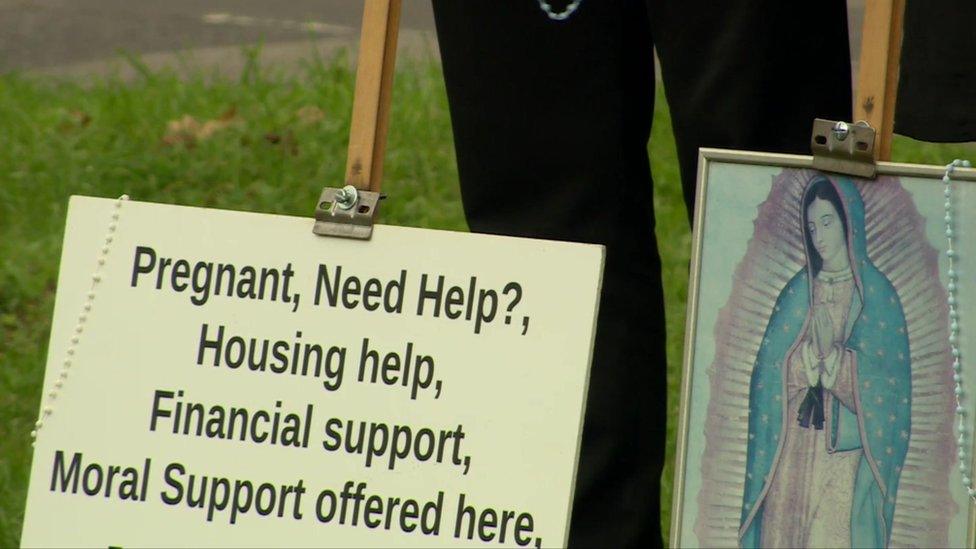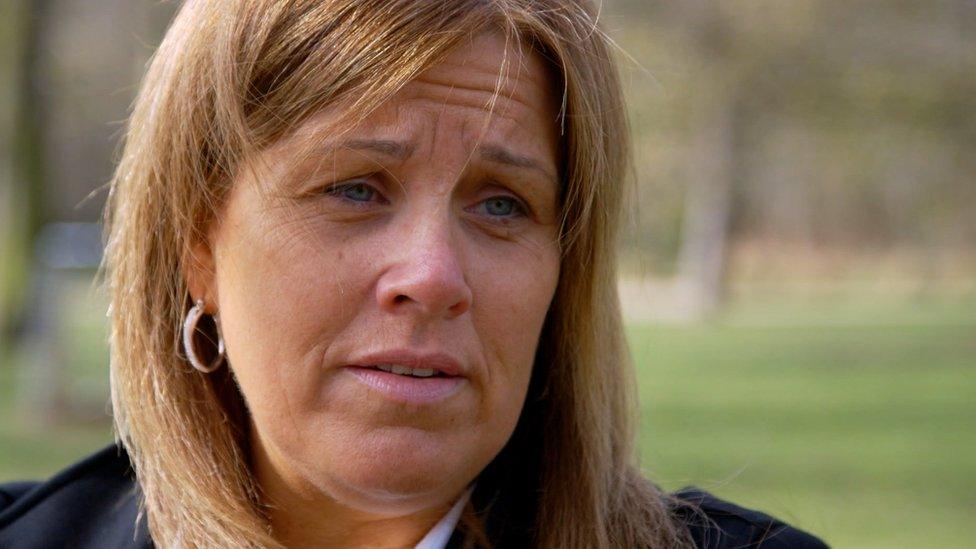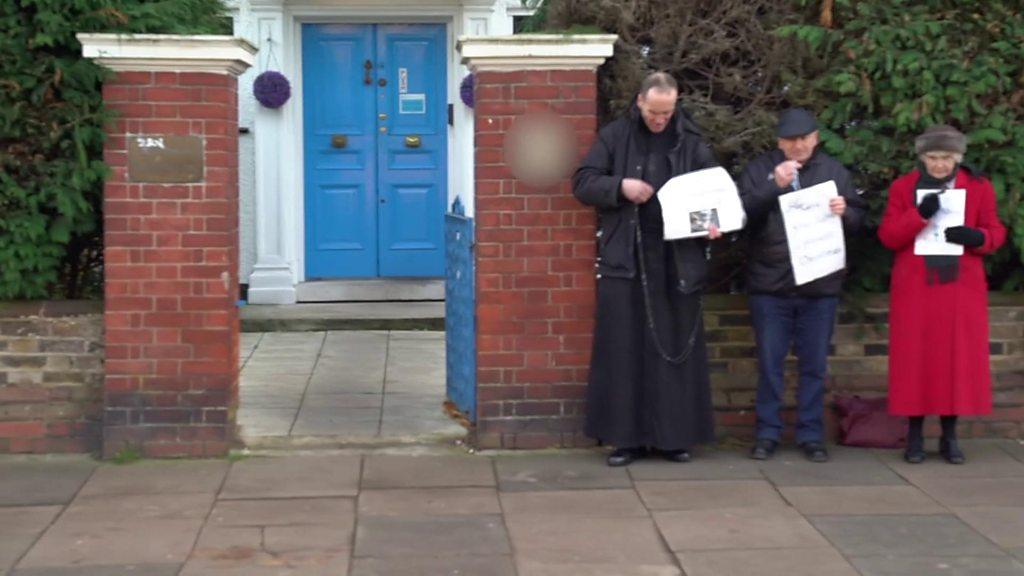Calls for abortion clinic buffer zones rejected
- Published
Anti-abortion campaigners protest outside London clinic in 2018
Calls for buffer zones to be introduced outside abortion clinics to stop patients being harassed have been rejected by Home Secretary Sajid Javid.
He said such protest-free areas around clinics in England and Wales "would not be a proportionate response".
A Home Office review found cases of harassment and damaging behaviour but they were "not the norm", he added.
Labour leader Jeremy Corbyn said the decision was a "shocking failure to protect women" and should be reversed.
In a written statement, Mr Javid said the review had gathered evidence that showed protesters' behaviour had left patients distressed and caused some to rebook their appointments and not to follow medical advice.
He said that in some cases, protesters handed out model foetuses, displayed graphic images, followed people, blocked their paths and even assaulted them.
However, he added that the review showed these activities were "not the norm" and most anti-abortion activities were "more passive", such as praying, displaying banners and handing out leaflets.
In 2017, 363 hospitals and clinics in England and Wales carried out abortions - 36 of which experienced anti-abortion demonstrations, according to the review.
Mr Javid said: "Having considered the evidence of the review, I have therefore reached the conclusion that introducing national buffer zones would not be a proportionate response, considering the experiences of the majority of hospitals and clinics, and considering that the majority of activities are more passive in nature."
He went on to say that there was already legislation - such as the Public Order Act 1986, external - in place that restricted protest activities which caused harm to others.
Defending the decision, Home Office minister Victoria Atkins told the Commons the government would continue with the current scheme of enabling councils to apply for Public Space Protection Orders.
In April, the west London council of Ealing took matters into their own hands, imposing a 100m protest-free "buffer zone" outside a Marie Stopes clinic.
But the constituency MP, Labour's Rupa Huq, said it was a "national problem that requires a national solution".
She told the Commons the conclusions were "a bit disappointing".
"It seems to be saying there has to be a disproportionate number of women affected before any action takes place," she added.
Speaking later to the BBC, she said shoving the burden onto already cash-strapped local authorities was not the best solution, and would leave women running "a gauntlet of a barrage of abuse just to have their NHS procedure done".
Newsnight: Should there be 'buffer zones' around abortion clinics in Britain?
Mr Javid's predecessor, Amber Rudd, who launched the review last year, has previously said it was "unacceptable" that anyone should feel intimidated at a clinic.
However, Ms Rudd, who resigned as home secretary in April, told the Commons that now that she could "travel slightly less conspicuously", she had visited the Ealing clinic.
She told MPs there was "no harassment continuing which, I believe, continues to reflect what has been concluded" in the government's announcement.
Clare Murphy, of the British Pregnancy Advisory Service, which provides abortion services in the UK, said the charity would seek to work with councils to roll out the Ealing "model" across the country to protect women and clinic staff from protesters.
The Royal College of Obstetricians and Gynaecologists said Public Spaces Protection Orders could be useful but had not been designed for this purpose. It said new legislation would make sure the approach towards protests was "consistent and effective".
Shadow home secretary Diane Abbott said Mr Javid had "given the green light for women to be harassed and abused for exercising their right to choose.
"This is a disgusting failure to uphold women's rights over their own bodies. Sajid Javid must urgently reconsider," the Labour MP said.
And her party colleague, Yvette Cooper, chairwoman of the home affairs select committee, said: "The whole point of having this review was because existing powers are not working or are proving cumbersome and difficult for councils or the police to use."
Elizabeth Howard, of Be Here For Me - a campaign group which opposed the ban on buffer zones - welcomed Mr Javid's "common sense" decision which would mean "women could continue to be offered much needed help and support".
Antonia Tully, of the Society for the Protection of Unborn Children, said they were "delighted" by the decision.
"This is a massive victory for common sense, democracy and above all for the hundreds of vulnerable women who are saved from the horror of abortion at the very gates of the abortion clinic."
- Published13 August 2018

- Published10 April 2018

- Published19 September 2018
